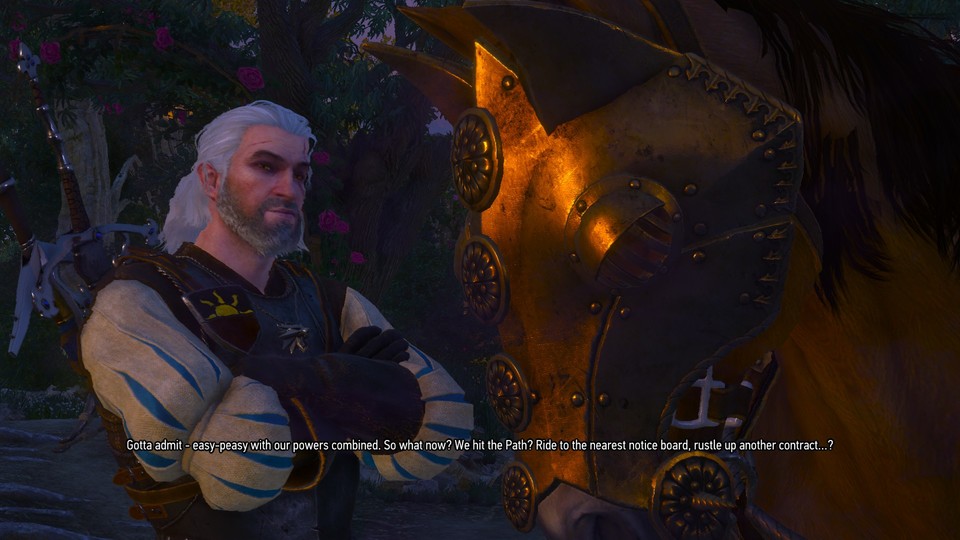Sacrebleu!
Most of Witcher 3's environmental influences have been "vaguely" European; aside from Skellige's nordic aesthetics (and Irish accents?), the lands of Velen and Novigrad generally felt, somehow, indistictly-but-obviously from somewhere between Central and Eastern Europe. The spoken accents and mythological references certainly seemed like they were picked from that rough set of inspirations.
Toussaint, the setting of Blood and Wine, is France.
This association is made loud and clear from the outset of the expansion: in how Toussaint's knights speak and act, in the layout of the beautiful, vineyard-dotted landscape, in how the people of Beauclair are always talking about wines and cheeses, and happily, in French puns like the Mere-Lachaiselongue Cemetery.
Wild Hunt and Hearts of Stone had their fair shares of humor, but it really feels like CD Projekt let loose and enjoyed themselves this time.
Which is not to say that Toussaint is all fun and games. Geralt is brought there to investigate a string of beastly murders, and the main questline is a thrilling, action-packed adventure about chivalry, secrets, betrayal, revenge, and vampires. The plot's intrigue, the characters' dialog, and the detail and care shown throughout the world is just as good as I've come to expect of The Witcher.
One aspect of Hearts of Stone that I'd glossed over was its effort to make boss fights more complex and challenging. While the main game's fights all tended to be solvable with enough button mashing, the expansion's bosses brought new mechanics that forced me to learn patterns, become better at dodging, and sometimes even solve a puzzle or riddle.
Blood and Wine has continued that trend, occasionally to an irritating extent -- the final boss, in particular, was somewhat long (with multiple phases) and was a real bitch to retry when I died.
(I actually have a similar complaint about a knights' tournament where, not wanting to accept defeat, I retried a sequence of time-consuming battles ... multiple times.)
But a small handful of frustrating moments are hardly enough to bring down the overall glory of this expansion. More than just a new storyline, Blood and Wine adds dozens of sidequests, new progression mechanics (granted the Mutations screen looks a little tacked-on), fascinating and tough foes, new background lore, a new Gwent deck, and a new map to explore that's just plain gorgeous.
And I've still got plenty of adventuring left to do.

Better than: The Witcher 3: Wild Hunt - Hearts of Stone
Not as good as: the sheer volume and gravitas of The Witcher 3: Wild Hunt's main campaign.
And I've still got plenty of sidequests to keep me busy: maybe until Cyberpunk 2077